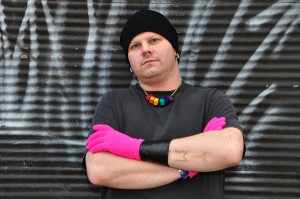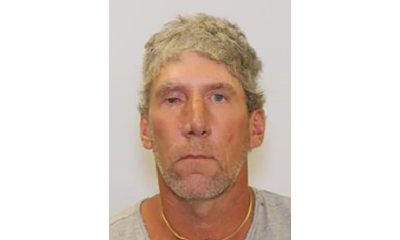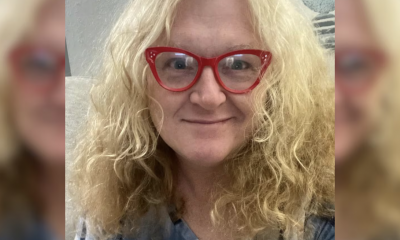Local
Gay man charged with ‘hate crime’
Says he defended himself against basher on 17th Street
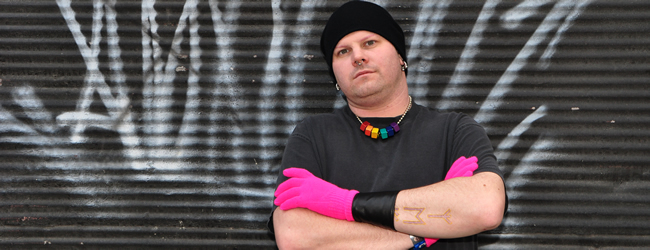
D.C. police Sunday night charged a gay man with a gay-related hate crime following an altercation with a panhandler on the sidewalk outside the 17th Street, N.W. gay bar JR’s.
The United States Attorney’s office dropped the hate crime designation the next day at an arraignment in D.C. Superior Court for Kevin “Jaden” Perry, 35, who says he’s a member of the local group called Radical Faeries.
But based on a police account of what happened, prosecutors with the U.S. Attorney’s office charged him with assault, possession of a prohibited weapon (a chain), and threats to do bodily harm to the panhandler. A judge released him on his own recognizance while he awaits a possible trial.
Perry and two friends who were with him dispute the allegations, saying the panhandler started the incident by calling Perry a faggot and raising his fists near Perry’s face when Perry refused the man’s request for money.
“I never assaulted the guy,” Perry told the Blade at the courthouse after his arraignment. “I called him out for calling me a faggot,” he said. “I was on 17th Street on a gay street and I just wasn’t going to take that.”
A police report filed in court, based on accounts by the panhandler and an unidentified witness, quotes Perry as calling the panhandler a “faggot” at the time Perry allegedly assaulted him.
“I will kill you. You’re a faggot,” the report quotes Perry as saying. “I’m a real faggot, bitch. You don’t want to fuck with a real faggot, bitch. I will fucking kill you.”
When asked about the police report, Perry said he never threatened to kill the panhandler and never physically assaulted him. He said he used the word faggot in the form of a question after the panhandler hurled that word at him.
“What I said was, ‘faggot? I’ll show you a faggot. I’ll whup your ass if you hit me,’” Perry told the Blade. “I never threatened to kill anybody.”
Perry continued, “Had he not thrown the first punch I would have walked away because honestly at that time I just wanted to go the McDonald’s and go … home.
“And he had to throw a punch and that’s when I lost it because I don’t take that shit,” he said. “I refuse to be victimized. You know, if you act like a victim you’re going to be treated like a victim.”
Roy Alexander, one of two friends who were with Perry at the time of the incident, backed up Perry’s version of what happened. He said that while Perry did call the panhandler names as the two “cussed at each other,” he never heard Perry threaten to harm the man.
“I was right there,” Alexander said. “The police talked to me. I told them what happened … The fact that I’m not even mentioned in the police report says something.”
“There’s been a lot of gay bashings in this city, and we seem to get attacked because we come across as weak,” Alexander said. “And now when someone stands up for himself he gets accused of a crime. This is just insane.”
D.C. police initially charged Perry with a bias-related assault with a dangerous weapon (a chain); felony threats; and simple assault after the panhandler and a witness told police Perry attempted to strike the panhandler with a chain he pulled from his pocket and punched the man in the back.
The report says Second District Police Officer La Vida Ellerbe, who is an affiliate member of the police’s Gay & Lesbian Liaison Unit, was on the scene and played a role in listing the incident as a hate crime.
The police report says the panhandler and the witness reported that Perry swung his chain at the panhandler and missed hitting him. An attempt to hit someone is considered an assault even if the attempt fails under criminal assault laws.
According to the police report, the panhandler and the witness said the chain fell out of Perry’s hand and landed on the ground and the panhandler picked it up and started to run away. It says Perry chased after the man. It says the panhandler reported Perry punched him in the upper back with a closed fist. The witness reported seeing Perry “throw a punch” toward the panhandler’s back, the police report says.
Perry denies he swung the chain at the panhandler, saying he swung it in the air in a circular motion as a warning that he would use it to defend himself if the panhandler attacked him. Perry said the panhandler swung the chain in the same circular motion but leaned forward toward him when the panhandler picked up the chain after Perry dropped it.
Perry said that in the heat of the moment, after the panhandler raised his fists like a boxer, he may have lunged at the man with his fist “but I never actually made contact.”
When told of the police report’s contents, Alexander said he never saw Perry wield the chain as if to attempt to strike the panhandler. He said he did not hear Perry threaten to assault or kill the panhandler as stated in the report.
At the courthouse, Perry said he feared that the panhandler was about to hit him because he raised his fists and moved toward him as if he were going to assault him.
He pleaded not guilty to the charges and was released by a judge, who agreed to a request by Assistant U.S. Attorney James Perez that Perry be prohibited from returning to the 1500 block of 17th Street., N.W., where JR.’s is located, until the case is resolved. Perry is scheduled to return to court for a hearing on Feb. 14.
William Miller, a spokesperson for the U.S. Attorney’s office, said he couldn’t immediately determine why prosecutors didn’t classify the charges against Perry as a hate crime. He said that similar to all cases at the arraignment stage, prosecutors could file additional charges at a later date if new information surfaces to warrant such charges.
“These are the initial charges,” he said.
The police report describes Perry’s chain as being between two and three feet long and of “medium gauge.”
In an interview at the courthouse following his arraignment, Perry said the chain was part of the leather-oriented clothes he wore on the night of the incident. He wore the same clothes upon his release at the courthouse: a black leather jacket and military camouflage pants.
Despite his appearance, Perry said he regularly performs in drag and had been involved, before moving to D.C. from San Francisco last year, in a group called the Sisters of Perpetual Indulgence. The group consists of men dressed as nuns who perform satirical skits to poke fun at the Catholic Church’s position on homosexuality and gay rights.
He said he had planned to form a Sisters of Perpetual Indulgence group in D.C. but said his arrest this week, which he believes was unjustified, plus his inability to find a job in D.C., has prompted him to decide to move to Baltimore.
Virginia
Norfolk transgender resource center vandalized
Anti-trans graffiti spraypainted onto Southeastern Transgender Resource Center’s windows
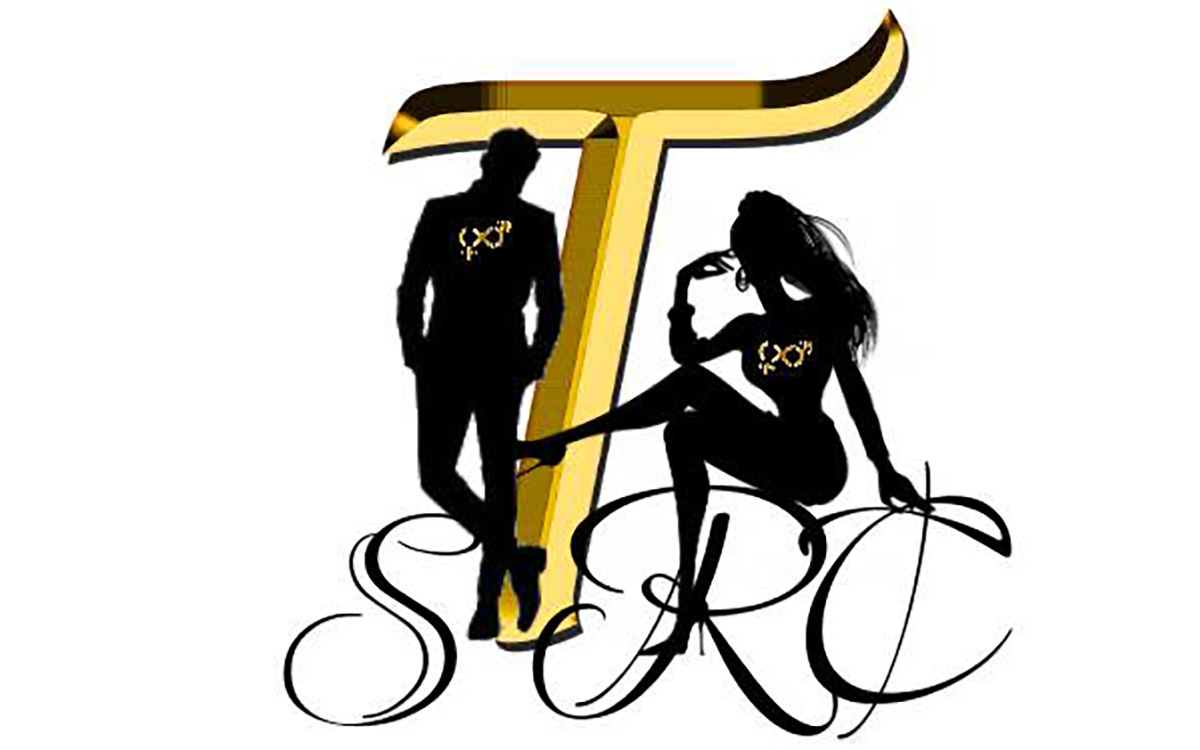
The Norfolk Police Department is investigating the vandalism of a transgender resource center’s building.
Tarena Williams, founder of the Southeastern Transgender Resource Center, told WAVY that someone spraypainted anti-trans graffiti on the windows of her organization’s offices on Sunday or Monday morning. Williams told the Hampton Roads television station that seeing the messages was like “walking into hell.”
“I opened up STRC, even the Lamina House,” she told WAVY. “I opened up that to get away from those types of words. This is a place you can come to get away from that, but to see that sprayed over the window. It’s kind of like you are walking into hell. … To be honest, I was like in shock.”
Authorities are investigating the vandalism.
West Virginia
Appeals court strikes down W.Va. transgender athlete ban
Ruling finds law violates students’ constitutional rights, Title IX

BY LORI KERSEY | The 4th U.S. Circuit Court of Appeals has struck down West Virginia’s ban on transgender athletes, finding the law violates trans students’ rights under the Equal Protection Clause of the constitution and Title IX, a federal civil rights law prohibiting discrimination based on sex in education programs.
The case, B.P.J. vs. the West Virginia Board of Education, was filed in May 2021 on behalf of Becky Pepper-Jackson, a 13-year-old trans middle school student and track athlete who would be barred from participating if the ban is upheld. Pepper-Jackson is represented by the American Civil Liberties Union, the American Civil Liberties Union of West Virginia and Lambda Legal.
In April 2021, West Virginia Gov. Jim Justice signed into law a bill prohibiting trans women and girls in the state from participating in sports that align with their gender identity. The U.S. Court of Appeals in February 2023 blocked the state from removing Pepper-Jackson from her school’s track and field team as legal advocates appealed a lower court’s ruling upholding the ban.
In Tuesday’s ruling, Judge Toby Heytens wrote that offering Pepper-Jackson the “choice” between not participating in sports and participating only on boys teams is not a real choice.
“The defendants cannot expect that B.P.J. will countermand her social transition, her medical treatment, and all the work she has done with her schools, teachers and coaches for nearly half her life by introducing herself to teammates, coaches and even opponents as a boy,” the judge wrote.
“By participating on boys teams, B.P.J. would be sharing the field with boys who are larger, stronger, and faster than her because of the elevated levels of circulating testosterone she lacks,” he wrote. “The Act thus exposes B.P.J. to the very harms Title IX is meant to prevent by effectively ‘exclud[ing]’ her from ‘participation in’ all non-coed sports entirely.”
In a statement Tuesday, Joshua Block, senior staff attorney for the ACLU’s LGBTQ and HIV Project, called the court’s ruling “a tremendous victory for our client, transgender West Virginians and the freedom of all youth to play as who they are.”
“It also continues a string of federal courts ruling against bans on the participation of transgender athletes and in favor of their equal participation as the gender they know themselves to be,” Block wrote. “This case is fundamentally about the equality of transgender youth in our schools and our communities and we’re thankful the 4th Circuit agreed.”
“We hope today’s ruling sends a message of hope to the trans youth of West Virginia,” Aubrey Sparks, legal director of the ACLU of West Virginia, said in the statement. “And a message of warning to politicians who continue to dehumanize this vulnerable population.”
West Virginia is one of 21 states that have banned trans student-athletes over the last three years, according to the ACLU.
In a statement Tuesday, West Virginia Attorney General Patrick Morrisey vowed to defend the ban and said he is “deeply disappointed” in the decision.
“The Save Women’s Sports Act is ‘constitutionally permissible’ and the law complies with Title IX,” Morrisey said. “I will keep fighting to safeguard Title IX. We must keep working to protect women’s sports so that women’s safety is secured and girls have a truly fair playing field. We know the law is correct and will use every available tool to defend it.”
******************************************************************************************

Lori Kersey is a reporter with a decade of experience reporting in West Virginia. She covers state government for West Virginia Watch.
******************************************************************************************
The preceding article was previously published by the West Virginia Watch and is republished with permission.
Nonprofit, nonpartisan, independent journalism not hidden behind a paywall. Mountaineers are always free, and so is West Virginia Watch.
West Virginia Watch is part of States Newsroom, the nation’s largest state-focused nonprofit news organization.
District of Columbia
Reenactment of first gay rights picket at White House set for April 17
Event marks 59th anniversary of historic push for gay rights in nation’s capital
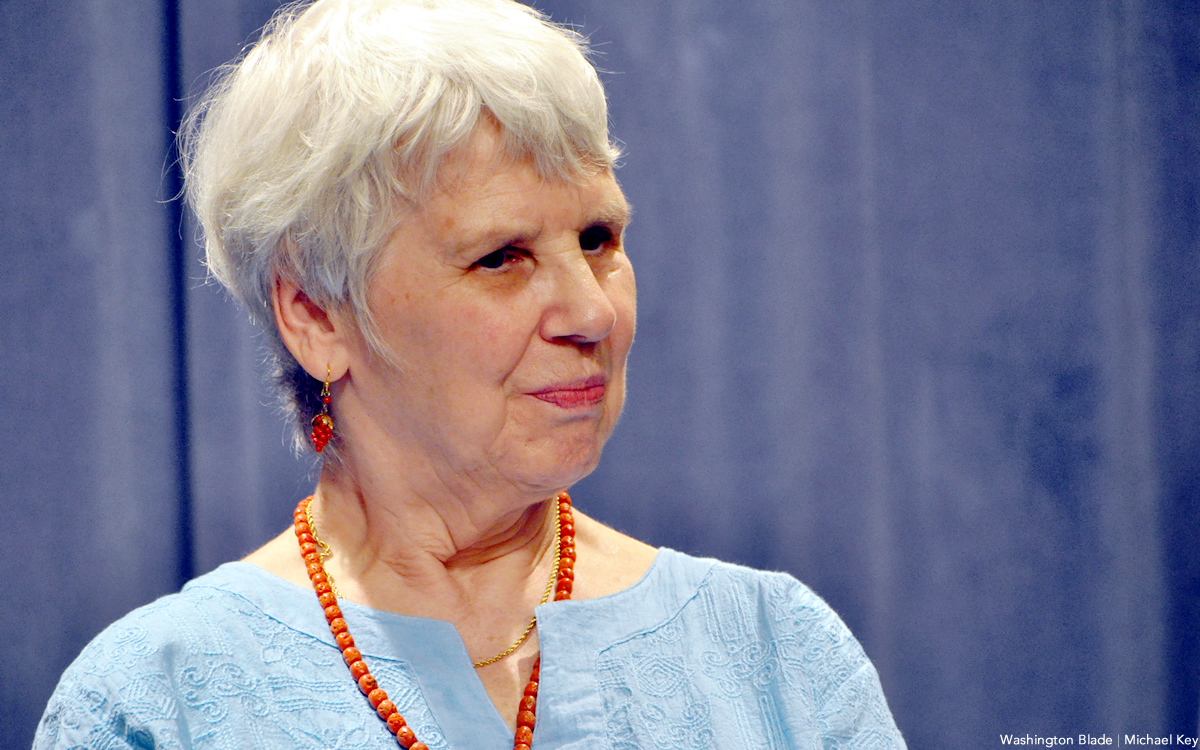
D.C.’s Rainbow History Project announced it will hold a reenactment on Wednesday, April 17, of the historic first protest for gay rights in the form of a picket line in front of the White House that took place on that same day in 1965.
In a statement released last week, Rainbow History Project says the reenactment will mark the 59th anniversary of an event that is credited with bringing attention for the first time to the federal government’s longstanding discrimination against a minority group referred to then as homosexuals or gays and lesbians.
The statement notes that the 1965 event was organized by the Mattachine Society of Washington, D.C., the first politically active LGBT organization in the nation’s capital founded by local gay rights pioneer Frank Kameny.
“The picket took place on the White House sidewalk, Lafayette Park, 1600 Pennsylvania Ave., on April 17, 1965,” the statement says. “For exactly one hour, from 4:20 p.m. to 5:20 p.m., members of the Mattachine Society of Washington walked in a circle, non-stop, in silence, carrying posters of their demands,” the statement continues.
“The White House picket is the origin story for public demonstrations for gay rights in the U.S., and the origin story for Pride Marches and the annual LGBTQ Pride celebrations which occur across the globe,” according to the statement.
It says those picketing in the April 1965 event, which included Kameny and longtime local D.C.-area lesbian activist Lilli Vincenz, both of whom held doctorate degrees, called on the government to adopt the Mattachine Society of Washington’s four major demands: an end to the exclusion of homosexuals from federal government employment; an end to the ban on gays and lesbians from serving in the U.S. military; an end to the “blanket denial” of security clearances for gay people; and an end to the “government refusal to meet with the LGBTQ community.’
Among those who chose not to respond to the request for a meeting was President Lyndon B. Johnson, who occupied the White House at the time of the 1965 picketing.
Vincent Slatt, the Rainbow History Project’s director of archiving and one of the lead organizers of the April 17 reenactment event, said the event is aimed, among other things, at drawing attention to how far the LGBTQ community has come since 1965. He said the event is not in any way a protest of the administration of President Joe Biden and Vice President Kamala Harris, who Slatt called staunch supporters of the LGBTQ community.
“We are just reenacting this historical event and pointing out how far we’ve come,” Slatt told the Washington Blade. “If you think about what it means in 1965 when these people were protesting and LBJ would not even respond to them. And now, we are at a place where Vice President Harris speaks on a stage at Capital Pride.”
The Rainbow History Project statement notes that the reenactment event will also be held in honor of Kameny, who died in 2011, and Vincenz, who passed away in 2023, both of whom participated in a similar reenactment event in 2008.
Among those who will be participating in this week’s reenactment on April 17 will be longtime local LGBTQ rights activist Paul Kuntzler, who is the only known surviving person who was among the White House picketers at the April 1965 event. Kuntzler will be carrying a replica of his own picket sign he held at the 1965 event, the statement says.
It says Rainbow History Project volunteers will also carry replicas of the original protest signs and hand out literature explaining the picket to passersby and tourists.
Similar to the 1965 event, the reenactment picketing at the White House will begin on April 17 at about 4:15 p.m., according to Slatt of the Rainbow History Project.
-

 Africa3 days ago
Africa3 days agoCongolese lawmaker introduces anti-homosexuality bill
-

 Colorado5 days ago
Colorado5 days agoFive transgender, nonbinary ICE detainees allege mistreatment at Colo. detention center
-

 World3 days ago
World3 days agoOut in the World: LGBTQ news from Europe and Asia
-

 Real Estate4 days ago
Real Estate4 days agoBoosting your rental property’s curb appeal

